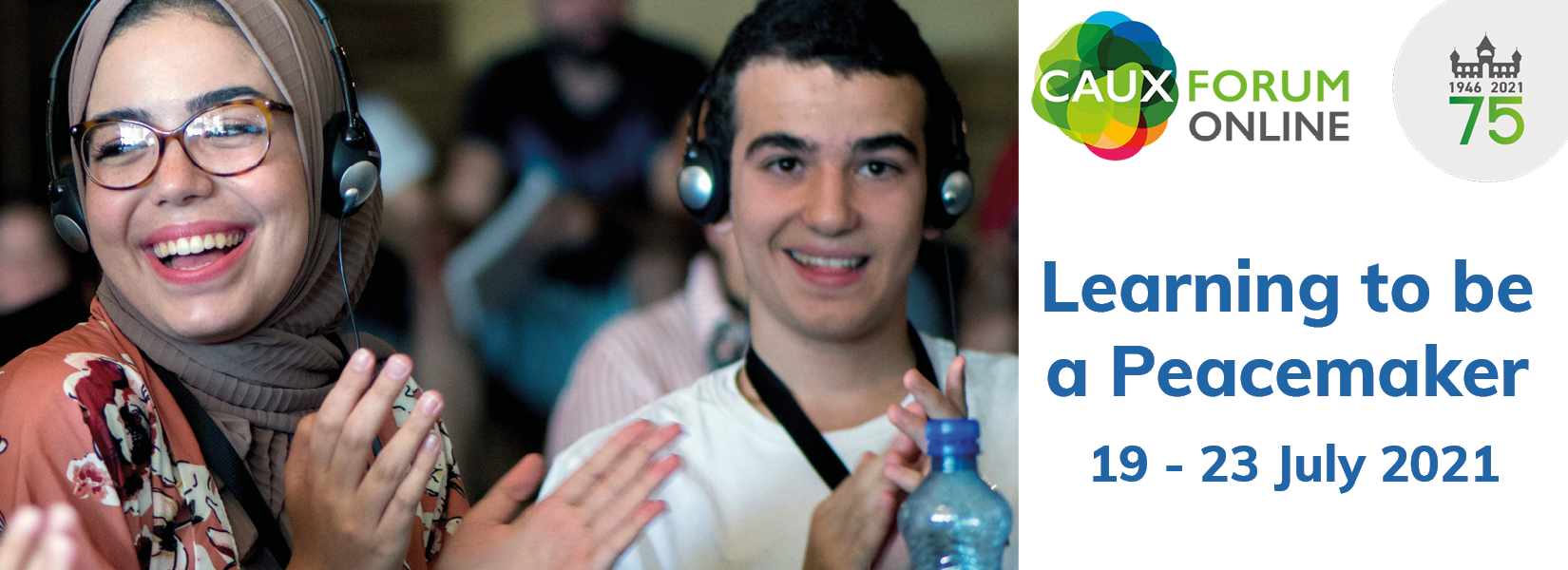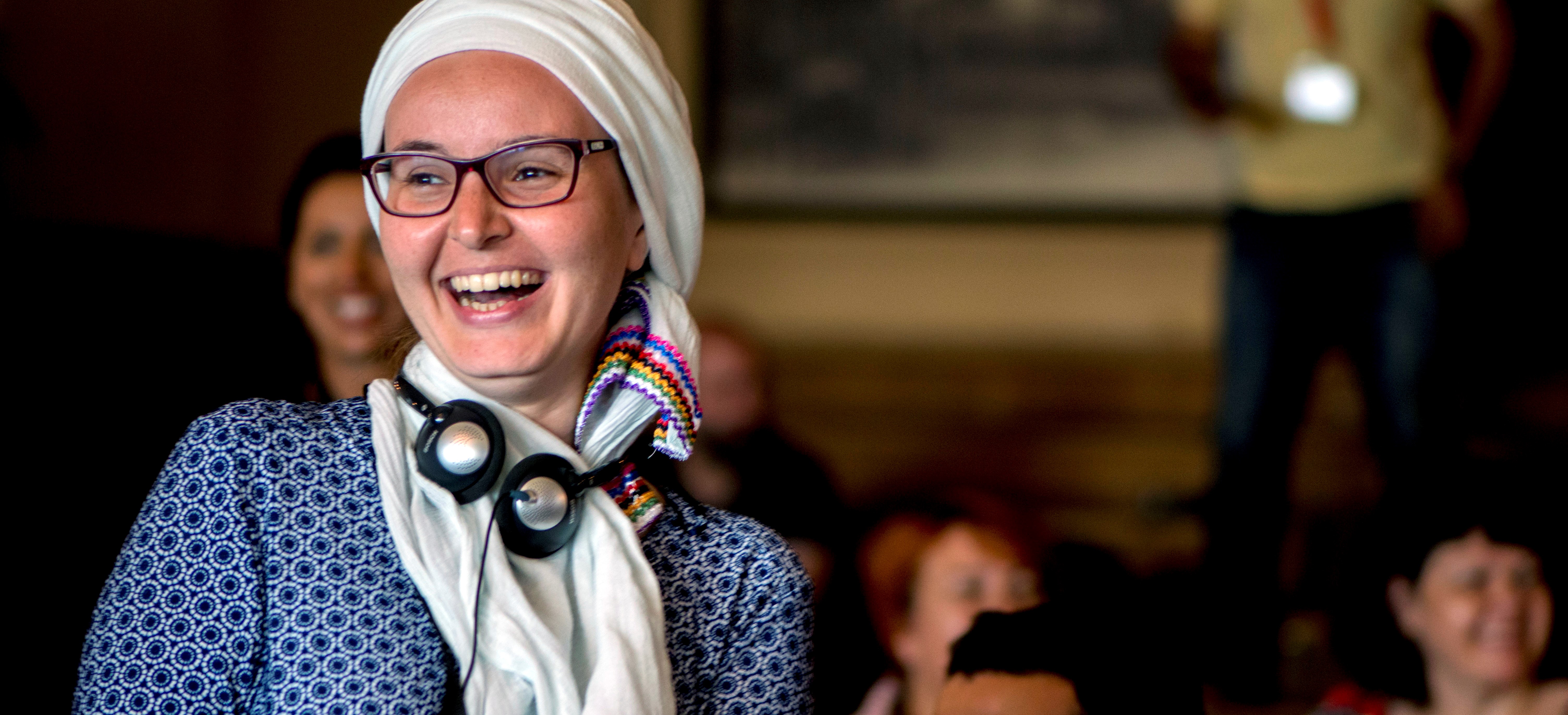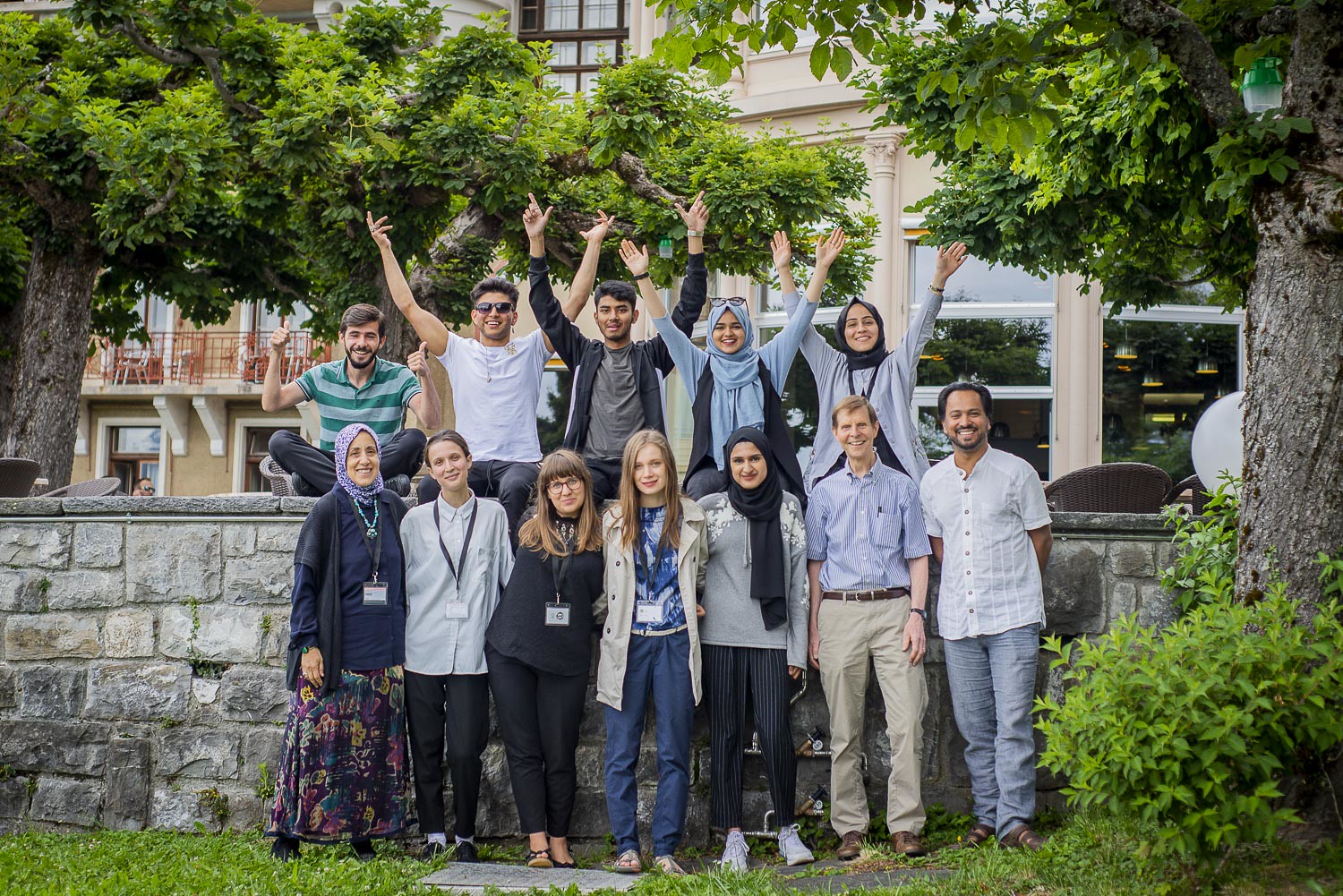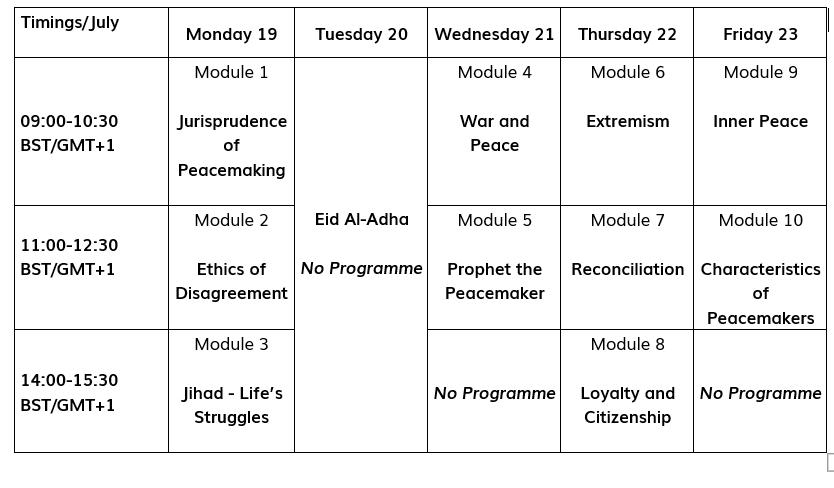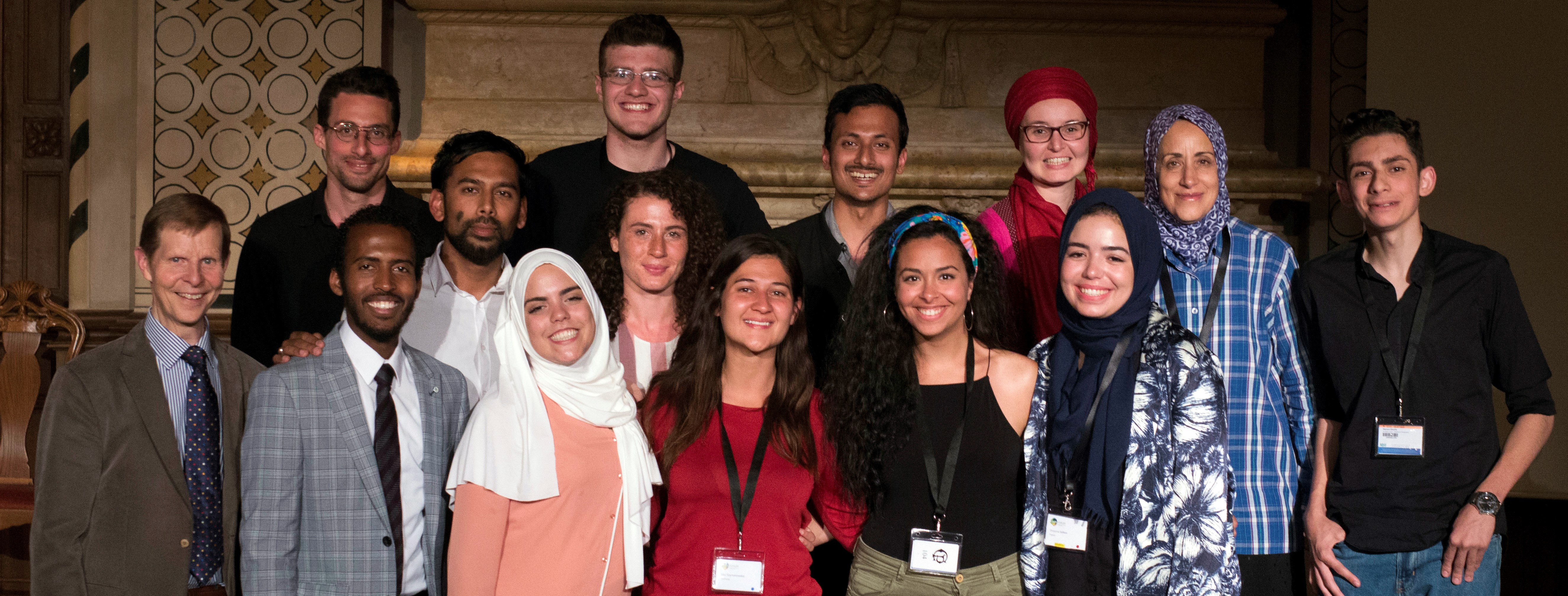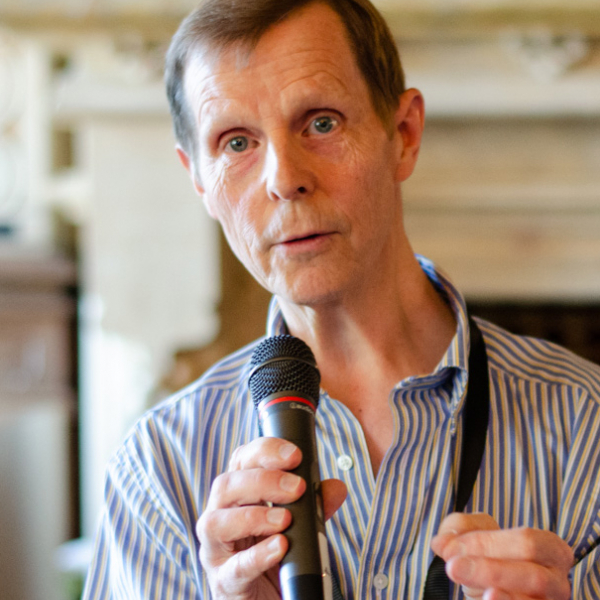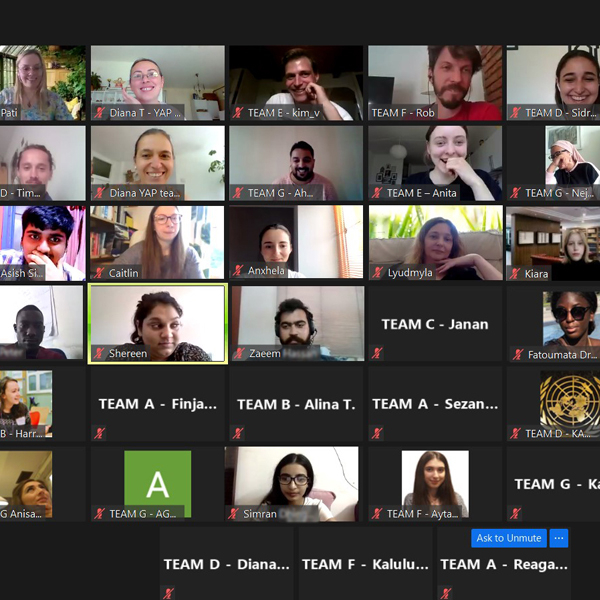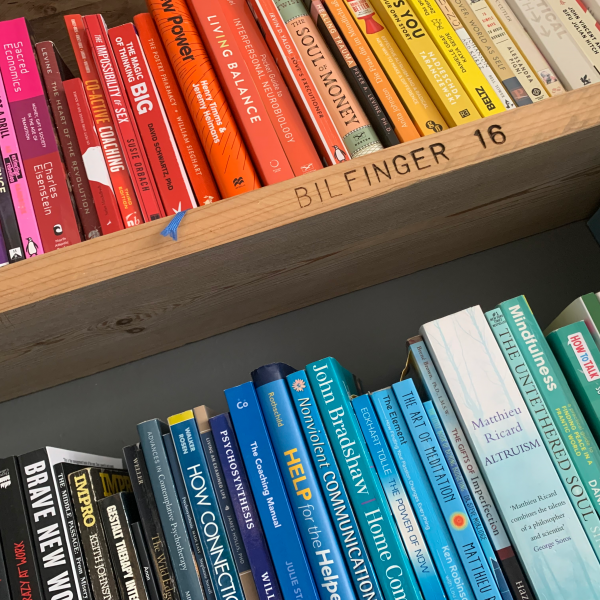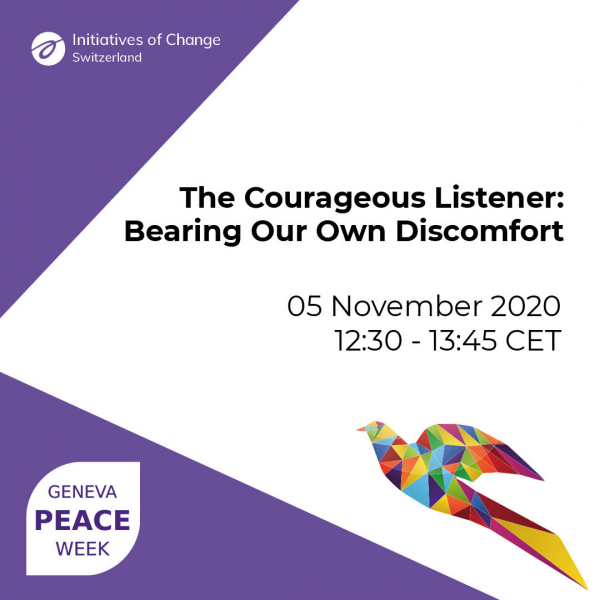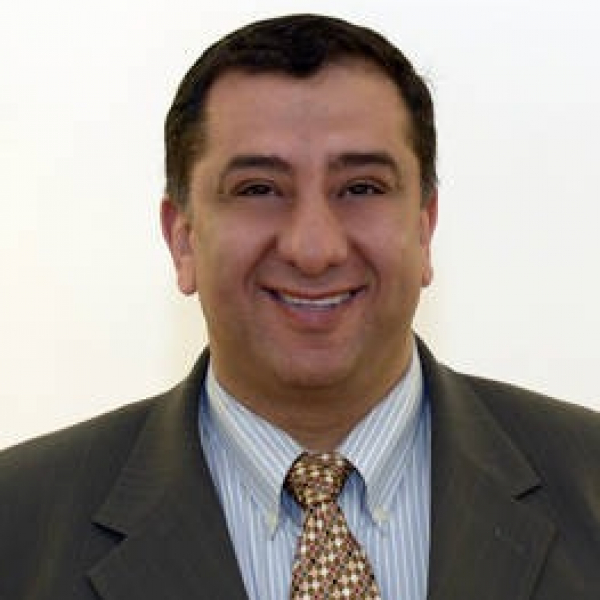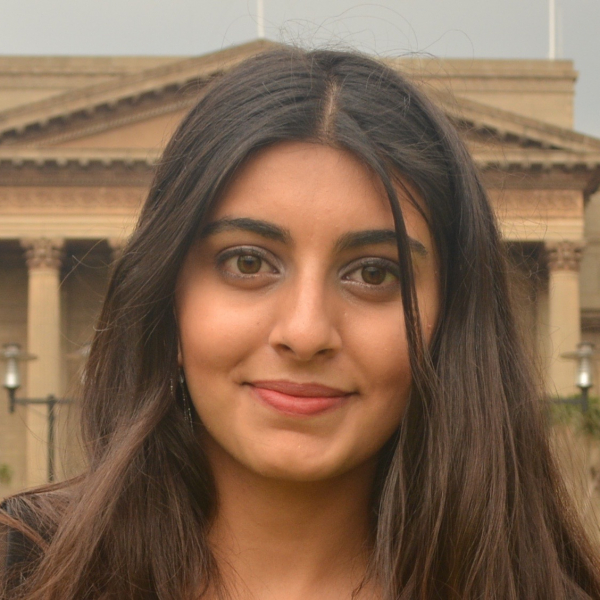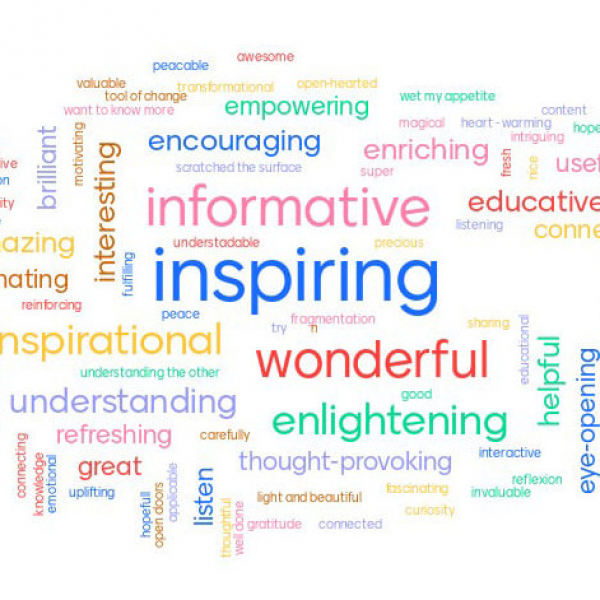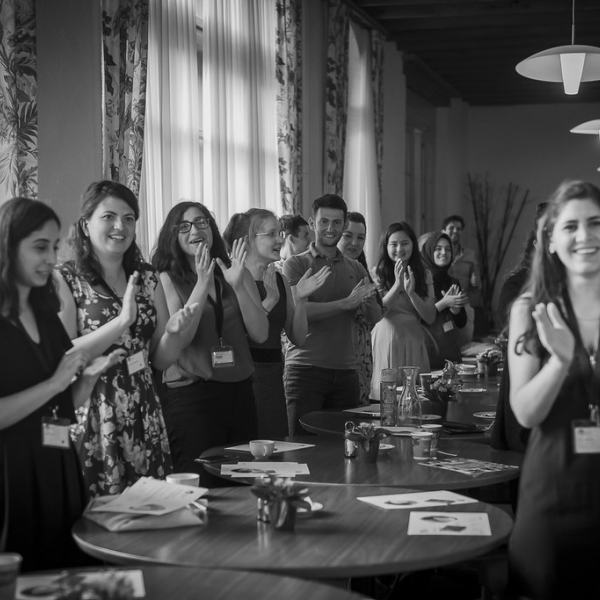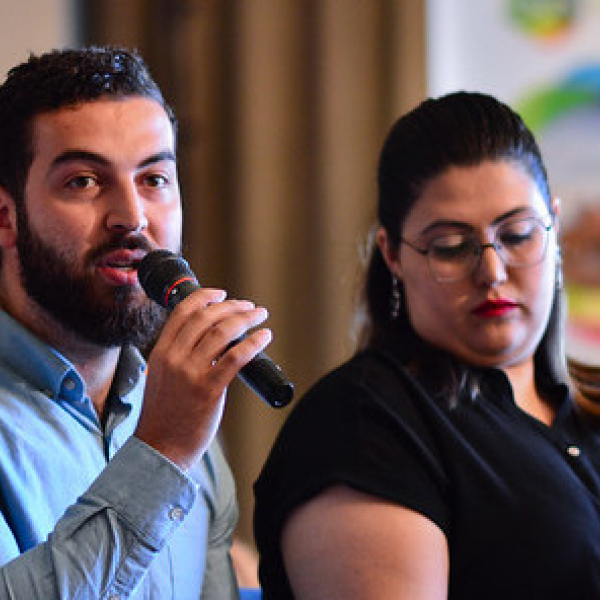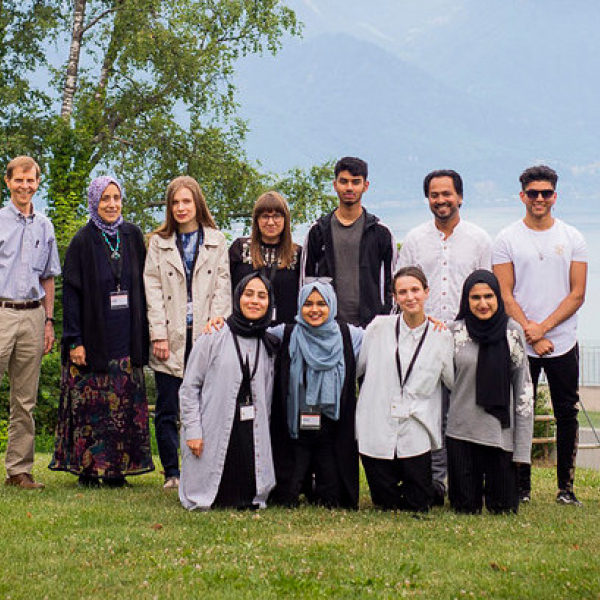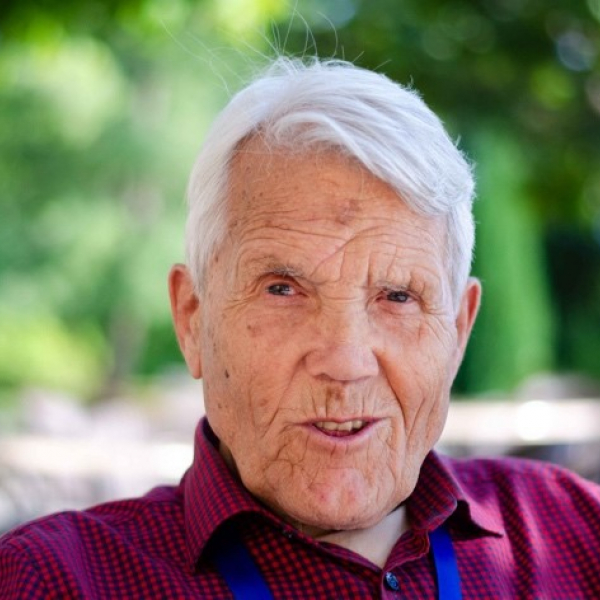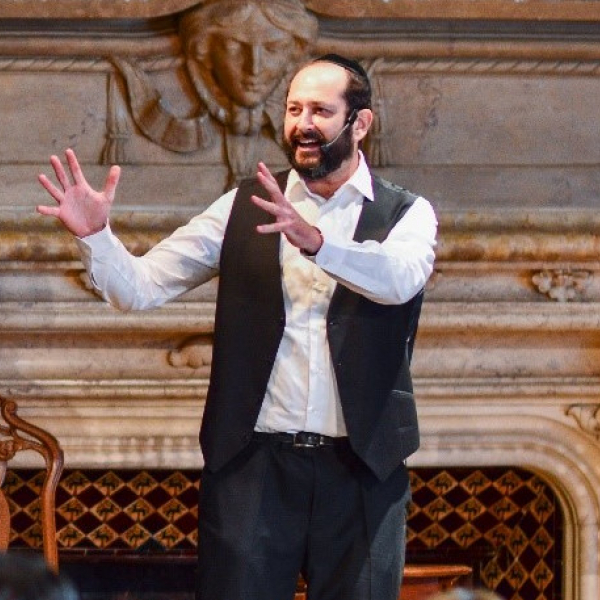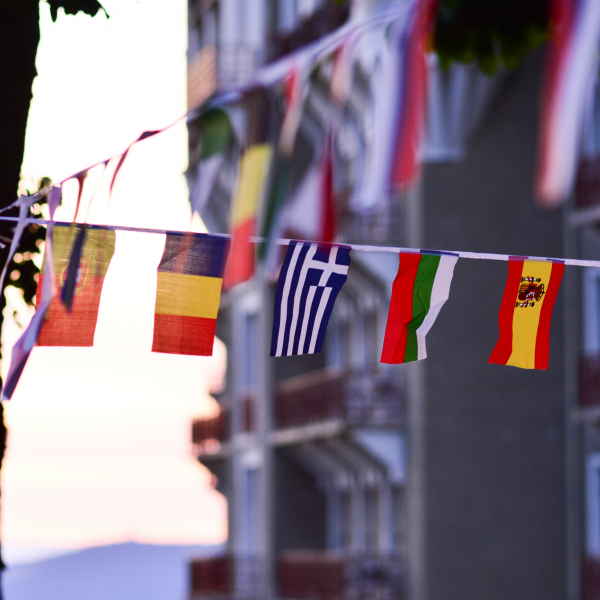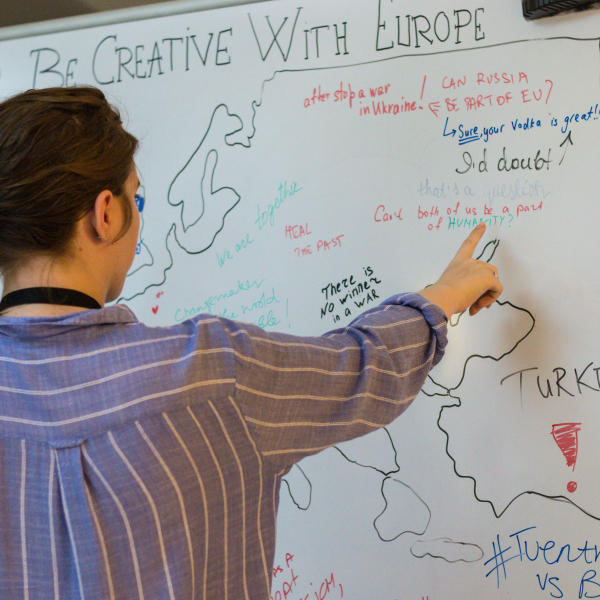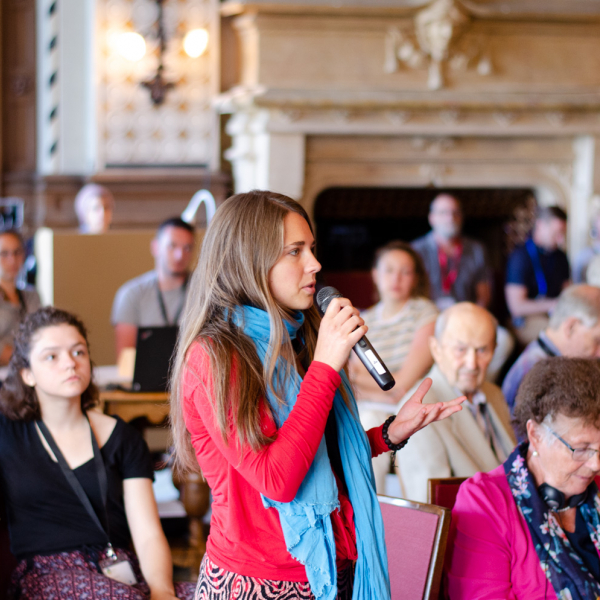Learning to be a Peacemaker
If you are aged 18-30 and passionate about global change and Muslims’ contribution to it, then the Learning to be a Peacemaker course is for you! Application deadline: 16 July 2021 (25 places only).
This online programme offers two unique possibilites:
- 19-23 July 2021 – Learning to be a Peacemaker, a five-day course for young Muslims and their non-Muslim peers on Islamic approaches to peacemaking
- 25-31 July 2021 – Participants are also invited do join the Caux Forum conference Creative Leadership: From Uncertainty to Possibility
Learning to be a Peacemaker (LPM) is a course
- on Islamic approaches to peacemaking
- in 10 x 90-minute modules over five days: 19-23 July 2021
- for young Muslims and their non-Muslim peers aged 18-30
- designed and delivered by Imam and broadcaster, Ajmal Masroor
What LPM offers
- Knowledge – providing factual information about the peacemaking culture in Islam and the wider context
- Connection – offering relationship-building opportunities between young European Muslims and their counterparts in wider society
- Dialogue – empowering young European Muslims and their peers of other beliefs to hold honest conversations
- Networking – connecting young people across Europe who may find shared inspiration to take initiatives for peacemaking and building trust across divides
Peace and justice are the two most sacred principles which underpin every aspect of a Muslim’s life. Therefore, becoming a peacemaker is the most important role a Muslim can play. Learning about peace and justice is the first step towards this goal.
This programme believes that learning to be a peacemaker is key to developing a confident global Muslim identity and contributing towards global change.
Context
Young European Muslims were either born or brought up here. Their parents straddle ethnic and European cultures and often have an expectation that their children will be culturally more ethnic. However, many young Muslims are more familiar and at home with European culture, and Europe is ‘home’. This experience of young Muslims is not only limited to young European Muslims, but is experienced globally.
This programme defuses that tension and helps make young Muslims’ local and Islamic identities symbiotic. In the current environment of increasing hostility towards Islam, Muslims are often viewed with suspicion. It is imperative to help young Muslims form a confident Muslim identity. Islam requires Muslims to be at peace with themselves and others.
We are currently witnessing the proliferation of terrorism, extremism, death and destruction all over the world. Many cities across the world have suffered terrible attacks and many lives have been lost. Most of these attacks have been attributed to terrorism inspired by Islam. However, terrorism has no religion, race or colour. It is simply evil. The most serious consequence has been the fissure that has developed between communities.
This course will help young Muslims to understand that they can play an important role in bringing communities together. It will help them engage in honest conversations which bring root causes of conflict to light, build trust and heal. In the same way, those who are not Muslims will gain a better understanding of their friends and neighbours who are Muslims, build better relationships and friendships, and consequently create a more cohesive society.
Course Content
- Jurisprudence of Peacemaking
- Ethics of Disagreement
- Jihad – Life’s Struggles
- War and Peace
- Prophet the Peacemaker
- Extremism
- Reconciliation
- Loyalty and Citizenship
- Inner Peace
- Characteristics of Peacemakers
Timetable
Delivery
The course will be delivered by zoom, and the link will be included in the message of acceptance of applications (see below).
The training style is interactive, with introductions to the subject matter by Imam Ajmal, followed by Q&A and small-group discussions.
The online Course Handbook, including references and exercises, will be made available online to participants at the beginning of the course.
At the end of the course, participants will plan a practical project to undertake at home to demonstrate learning and commitment to peacemaking. There will be a follow-up session after two months to report on progress regarding the project.
All the participants will be expected to complete the evaluation form.
Certificates of Completion will be awarded to those who attend all modules, complete the evaluation form and carry out the project.
What previous participants said:
- ‘I have learned that if you have no peace within yourself, you can’t make peace.’
- ‘I learned how to acknowledge and appreciate others for what and how they are, without requiring them to change as I want.’
- ‘It was only when I met people from all over Europe who held me in their hearts, that I came to hold Europe in my heart.’
- ‘I have learned the importance of being a good citizen from an Islamic viewpoint and that it is important to serve your community where you live.’
- ‘The session on Prophet Muhammad (pbuh) the Peacemaker was the most valuable lesson. Following and understanding his actions would definitely make one a better peacemaker.’
- ‘As a non-Muslim, whilst my knowledge of Islam grew, conversations with friends from France, Sweden and the UK widened my understanding of what it means to be a Muslim today in a sometimes hostile society.’
- ‘Through the two programmes, I have seen the world better through the prism of Islam as a Muslim trained in peacemaking, and through the eyes of non-Muslim Europeans and how they see the challenges we face with immigration, identity and multiculturalism in the future.’
Reports and videos from previous programmes
- LPM 2020 personal evaluation
- LPM 2019 news item
- LPM 2018 video
- LPM 2011 video
- LPM 2009 video
- BBC World Service news item 2009
Cost
Free course - donations invited according to means (click here)
Applications 2021 are now closed!
Applicants for the programme are expected to:
- be aged 18-30
- have a good standard of spoken and written English
- have a serious interest in the subject
- be actively involved in serving their community at community, national or international level
- actively participate in the whole programme
- undertake to carry out a project after the cours
Please note:
All data regarding applications for Learning to be a Peacemaker will be collected by the Barefoot Institute.
Accepted applicants are also invited to register as participants for the Creative Leadership conference, hosted by IofC Switzerland. Registration open 1 June. Please read our Terms and Conditions for the participation at our online events.
